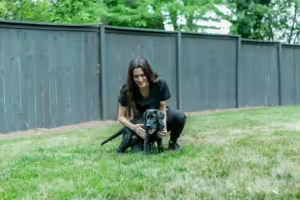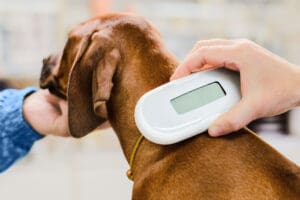1. Purchasing a puppy, or any pet for that matter, should never be an impulse buy.
You and your family should carefully consider what this addition to your family will mean. Everyone should be in agreement that it is a good idea and everyone should be committed to the life and health of the pet. Too many pets are surrendered each year because people just completely under estimate the commitment it takes to care for an animal. Space, time, and money should all be considered when thinking about getting any animal.
2. Do your research on the right breed for you.
You and your family should carefully consider what this addition to your family will mean. Everyone should be in agreement that it is a good idea and everyone should be committed to the life and health of the pet. Too many pets are surrendered each year because people just completely under estimate the commitment it takes to care for an animal. Space, time, and money should all be considered when thinking about getting any animal.
3. Consider adoption.
Millions of animals are euthanized every year in the United States because they can’t find a forever home, and by adopting one of these animals, you will help a very tragic situation. There are many breed specific rescue groups around so you do not have to give up your dream of always having a particular breed. Also, good rescue groups should be able to give you an idea of the health or behavioral issues that may already be present in the dog (if there are any!). This may cut down on some of the guesswork.
4. First and Foremost!! It is extremely important to know and visit your breeder.
Observing your prospective puppy’s parents and the environment it has spent a very critical time of its life in is important. Observe mom or dad (or better yet both). If you do not do this, you are denying yourself a large chunk of extremely important information.
5. The socialization period of puppies starts as early as 19 days after they are born and continues until about 12 to 16 weeks of age, and puppies should not be sent home before 8 or 12 weeks of age.
This means that the majority of the “socialization period” for your puppy could occur with the breeder. This is why observing how your puppy responds to the breeder and how the breeder interacts with your puppy is so important. If you notice mom or dad showing fear of you, the breeder, loud noises or sudden movements, you may consider finding another breeder.
6. Socialization is so important to the mental health and long term happiness of you and your pet.
It is important to determine what kind of socialization activities the pups have been exposed to: children? Other types of pets? Other people than the breeder?
7. Other important observations to make include:
How big are mom and dad? Are they the proper size for you? How clean are the facilities? Obviously, the cleaner they are the better that is for your potential pup! Dirty environments early on can increase the chances of diseases and infections ranging from intestinal parasites (worms) and mange to deadly parvovirus.
8. Is there room for the puppies to play outside?
Do they have clear access to clean water? Where are they housed at night? You should never feel like you are “rescuing” your puppy from the breeder. Those puppies should be so happy and healthy that you almost feel bad taking them from their family.
9. A good breeder will be just as interested in finding out what kind of pet owner you will be as you are about what kind of breeder they are.
They will also want to follow up and make sure that you and your puppy are happy and enjoying each other as much as possible!
10. Ask questions about the health of mom and dad:
Do mom/dad have any chronic illnesses? Allergies, Arthritis, and Anxiety can all be genetically influenced.
11. Know the common health problems associated with your breed and ask for documentation that the parents have been screened for these issues.
12. If your breeder is selling puppies as “pure bred” do not leave the premises without the papers indicating AKC registration.
If they say they will mail them to you or they have them off premises do not purchase the puppy until they can give you original documents.
13. Will they let a veterinarian examine them prior to purchase and what is the “return policy”?
Since many illnesses can have an incubation period of 10 to 14 days. The return policy should allow for at least that amount of time to return a purchased puppy.




